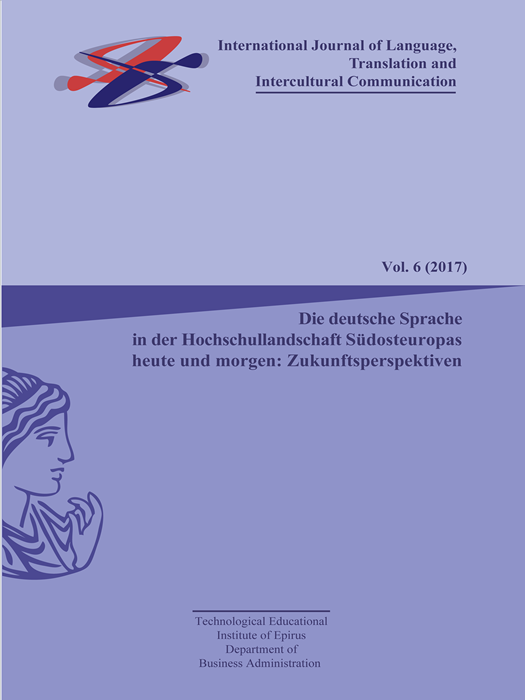Die deutsche Sprache im Hochschulraum Bulgariens heute und morgen

Abstract
Im folgenden Artikel geht es um die gegenwärtige Situation des Erwerbs der deutschen Sprache im bulgarischen Tertiärbereich, nachdem die Richtlinien gemäß des Bologna-Prozesses Anwendung gefunden haben. Eingegangen wird auf die Struktur der philologischen und die nach der deutschen Sprache ausgerichtete Bildung, den Unterschieden in den Curricula und den Studienprogrammen, als auch auf die Zukunft der deutschen Sprache im Hochschulbereich. Das Profil der Studenten und der Lehrkörper, Forschungsbereich und akademische Weiterentwicklung werden analysiert. Schließlich wird der Versuch unternommen, Probleme zu eruieren und Vorschläge zu machen, um die sogenannten „best practices“ im Hochschulbereich Bulgariens entsprechend zu implementieren.
Article Details
- How to Cite
-
KAMBUROVA-MILANOVA, I. (2017). Die deutsche Sprache im Hochschulraum Bulgariens heute und morgen. International Journal of Language, Translation and Intercultural Communication, 6, 30–36. https://doi.org/10.12681/ijltic.15562
- Section
- Articles

This work is licensed under a Creative Commons Attribution-NonCommercial-ShareAlike 4.0 International License.
Copyright Notice
Authors who publish with this journal agree to the following terms:
- Authors retain copyright and grant the journal right of first publication with the work simultaneously licensed under a Creative Commons Attribution License that allows others to share the work with an acknowledgement of the work's authorship and initial publication in this journal.
- Authors are able to enter into separate, additional contractual arrangements for the non-exclusive distribution of the journal's published version of the work (e.g., post it to an institutional repository or publish it in a book), with an acknowledgement of its initial publication in this journal.
- Authors are permitted and encouraged to post their work online (e.g., in institutional repositories or on their website) prior to and during the submission process, as it can lead to productive exchanges, as well as earlier and greater citation of published work (See The Effect of Open Access).


